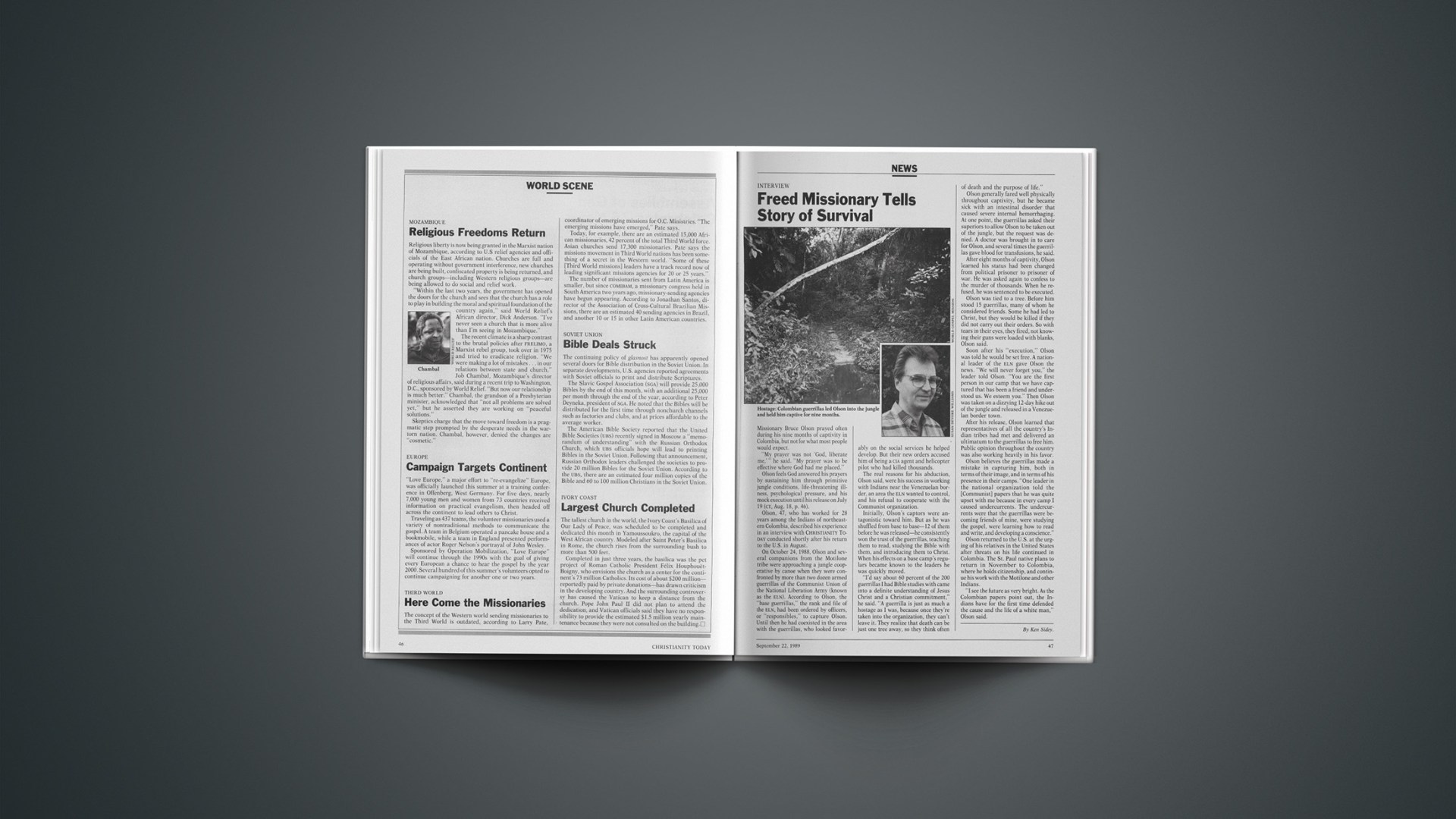As Colombian authorities and the drug mafia literally battled for control of the country, evangelical Christians in Medellín did not sit idly by.
On August 21, just three days after the assassination of presidential candidate Luis Carlos Galen, more than 1,400 gathered at a local evangelical church for five hours of prayer and fasting. Remarkably, they represented all of the 30 evangelical denominations in the city. Even some Roman Catholic charismatics attended, organizers said.
The bigger-than-expected turnout reflected Christians’ sense of urgency for the situation in their country. Said Ramon Carmona, one of the meeting’s organizers, “To me, this prayer meeting indicates two very important things. First, the church in Medellin desires to be obedient to Christ’s command for Christian unity. Second, the church—and especially the pastors—are seeing the only way to impact the city is through our unity.”
The meeting was particularly significant considering the long history of division among evangelical groups in Medellín and the fact that there are only about 9,000 evangelical church members in the entire city of 2.5 million.
The prayer meeting was scheduled nearly a month prior to the rash of killings that prompted Colombian President Virgilio Barco’s crackdown on the powerful drug mafia. Church leaders involved in a year-long evangelistic effort in Medellín had organized the August 21 meeting as a way to kick off their door-to-door evangelistic outreach during September. Simultaneous evangelistic campaigns in local churches are planned for October.
Historically, Medellín has been Latin America’s bastion for conservative Roman Catholicism. Its evangelical church is one of the smallest for a major Latin city, with only 3 of every 1,000 people in Medellín belonging to an evangelical church.
Many local pastors, however, report that evangelical churches are starting to grow. More than anything, they say, that growth probably owes to heightened tensions and violence in Medellin. The city is headquarters for the Medellín drug cartel, believed responsible for 80 percent of the cocaine entering the United States.
By John Maust.










